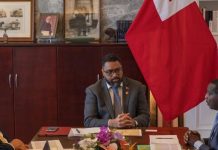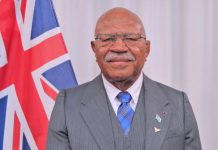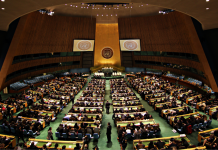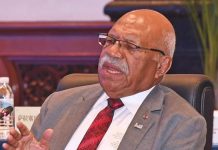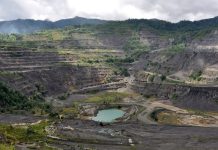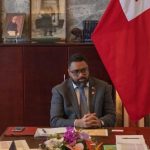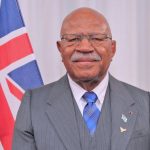Fiji’s Permanent Secretary for the Environment and Climate Change, Dr Sivendra Michael, issued a clear call last week for global accountability at the biodiversity COP16, urging world leaders to deliver on promises to reverse biodiversity loss or risk leaving a legacy of “inter-generational regret.”
Speaking on behalf of Fiji’s Prime Minister Sitiveni Rabuka, Dr Michael commended Colombia’s hosting of COP16 in Cali, but didn’t mince words about the task at hand.
“We are here to disrupt humankind’s destruction of nature,” he said. “The trends we are witnessing are unsustainable and will only lead to catastrophe unless we act decisively and with urgency.”
Fiji, like many other Pacific Island nations, is feeling the impacts of biodiversity loss more intensely than most. The country faces a unique combination of vulnerabilities due to its reliance on the natural environment, and its delicate ecosystems are already at risk from the broader threats of climate change.
In his statement, Dr Michael underlined how Fiji, along with other island nations, experiences daily pressures in managing economic development, protecting social rights, and preserving biodiversity. “For us, it’s not a choice between economy and environment; both must be protected together,” he said. “We balance economic growth, social protection, and environmental preservation all at once.”
Dr Michael directed his statements at wealthier nations, calling for a renewed commitment to the Kunming-Montreal Global Biodiversity Framework.
“We have agreed to halt and reverse biodiversity loss by 2030, not to merely discuss it,” he said.
He expressed Fiji’s disappointment that, despite a commitment to mobilise US$20 billion per year by 2025, there remains a major shortfall in the promised financing for biodiversity protection and restoration in developing countries.
“New commitments have been sparse,” he stated bluntly, warning that insufficient financial mobilization could stall global efforts to meet biodiversity goals.
Fiji’s representative painted a dire picture, noting that current extinction rates are estimated to be 100 to 1,000 times the natural background rate—a pace that threatens not only Pacific ecosystems but also global stability.
“The generations represented here inherited economic systems that disregarded the intrinsic value of biodiversity,” Dr Michael said.
“We cannot pass this flawed approach to future generations.”
Dr Michael also highlighted the importance of integrating human rights into biodiversity conservation.
He stressed that the global commitment to protect biodiversity must be inclusive, focusing especially on Indigenous Peoples, local communities, women, youth, and children.
“We cannot claim to promote human rights if we scuttle the biodiversity that is essential to social stability and resilience,” he argued.
He pointed out that these groups are often at the forefront of conservation but lack access to the financial resources needed to carry out their vital work.
“Equitable funding allocation is essential. Without it, the groups that are the most affected by biodiversity loss will be the ones least able to protect it.”
Fiji’s position is clear: it’s time to go beyond talking and commit to substantial, predictable funding for biodiversity.
Dr Michael called on COP16 to establish a dedicated Global Biodiversity Fund, an initiative that would mark a significant step toward formalising financial mobilisation under the CBD. This fund, he argued, would not only ensure adequate resources for biodiversity protection but would also send a strong signal that the international community is committed to implementing its promises.
“For us, this fund is essential,” Dr Michael said. “It would provide the resource base that is necessary for conservation initiatives to move forward. This isn’t just about our national priorities; it’s about creating a global safety net for the world’s ecosystems.”
Dr Michael highlighted that for Pacific nations, the stakes are existential. Fiji and other Pacific Island states depend on their rich natural environments not only for food and economic security but also for cultural identity. The irreversible loss of these resources, he argued, would undermine the very foundations of Pacific life.
“Here in Cali, we are deciding whether to deliver inter-generational hope or to become complicit in creating inter-generational regret.” He implored his fellow delegates to consider the long-term implications of their actions, or lack thereof, at COP16.


